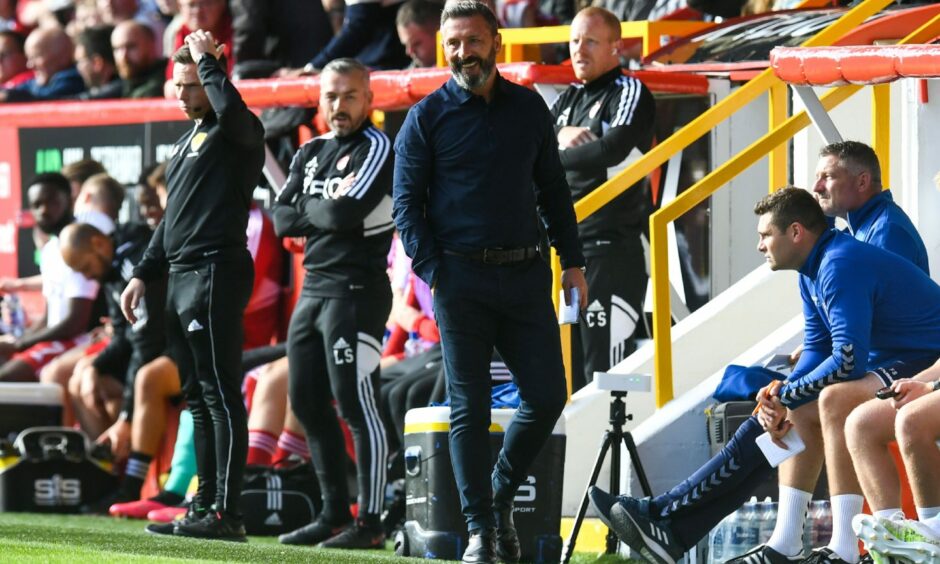It was heartening to see Derek McInnes receive such a fond and genuine welcome on his first return to a venue in which he served with distinction.
It confirmed that, however much it withered towards its discordant end, his Pittodrie tenure contained far more good than bad, and remains appreciated by support which understands his historical place.
McInnes displayed a great many qualities in his time at the Dons.
Among them were the ability to virtually guarantee Aberdeen victories in matches against Kilmarnock, and a knack for negotiating himself improved contracts at the precise moments his stock had reached a peak.
So when he entered his former workplace at the head of a Killie squad with the ink still wet on a three-year extension to his leadership of it, it will have given a healthy boost to the confidence of a Reds side still too early in its own journey to be certain of anything.
Another of the hallmarks of McInnes’ early years had been his teams’ capacity to score first and nurse the lead; the sudden adoption of a propensity for dropping advantages was arguably the beginning of a descent which ultimately resulted in the manager’s severance many months later.
So it was perhaps poetic that Jim Goodwin’s Aberdeen raced upfield immediately after opening the scoring and quickly delivered a second blow from which McInnes could not plot a recovery.
It has, of course, not always been thus. Aberdeen have held the lead in all but one of the 13 matches they have played this season, but have spilled four of them before the final whistle.
Those that they retained have generally been as a consequence of keeping the hammer down and looking to increase, not protect, what they have. Here was a salient lesson, for all concerned.


Conversation